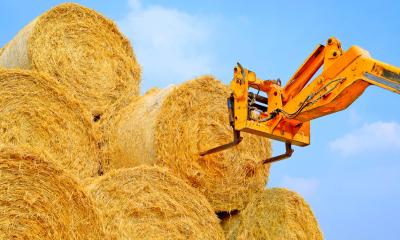
Farm suppliers provide a wide range of essential goods and services to local agricultural and land-based businesses. Get the essentials for starting up and running your own farm supply business in our practical guide.
Research your target market
Estimate demand
You will need to make an estimate of the type and number of customers who are likely to buy goods from you.
Trade sales
It is likely that a large proportion of your sales will be 'trade sales' to agricultural and other land-based businesses. These may include:
- farmers
- agricultural contractors
- businesses like caravan parks, landscape gardeners, and so on
- local authorities
- riding schools and livery stables
- pet shops and boarding kennels
- local hunts and shoots
- other, smaller farm suppliers
Think about how many potential trade customers there might be in your area. You could look online at yell.com - or take a drive around your local area. (Bear in mind that most farms are unlikely to be included in directories but other potential customers like equestrian businesses probably will.) If possible, find out from prospective customers what they would want your business to offer and what they like and dislike about their existing suppliers.
Competition
It's a good idea to assess the competition before starting your business. Your competitors might include:
- other farm suppliers in your area. As well as independent businesses there are both national and regional chains of agricultural suppliers in the UK
- manufacturers selling direct to the farmer
- specialist online-only suppliers selling direct to the farmer. These often have lower operating costs than a premises-based farm supplier so can sell goods more cheaply
- veterinary practices and pharmacies (premises-based and online), if you intend to sell animal medicines
Find out what your customers want
Match the goods that you stock to the needs of the farmers in your local community. For example, if the majority of local farms produce just arable crops, there may not be much demand for animal feed. Carrying out a survey of your local area will help you to establish what types of farms there are. Don't forget that many farms have diversified into non-farming activities and this trend is likely to continue. Think about whether you'll try to stock ranges of products to cater for these non-farming activities. You could also make a note of any other land-based businesses, such as riding schools and stud farms, that might purchase goods from you.
Consider selling online
An ecommerce website allows you to sell online to a wider audience and potentially beyond the UK.
Research current trends, plus legal and tax issues
Decide your product mix
The range of goods that you stock will be influenced by the nature of the farms in your surrounding area and the farming and non-farming activities they carry on. It will also depend on what type of business you intend to run. For example, you may decide to specialise in, say, farm machinery, or you may aim to stock a wide range of products. It may also depend on whether you are planning to target just the farming sector or if you are aiming for a broader market to include equestrian and other land-based businesses and even members of the public. Your product range may consist of some or all of the following:
- farm machinery
- agrochemicals
- fertilisers
- seed treatments or growth regulators
- feedstuffs for a wide range of different animals
- feeding equipment
- filtration and pumping equipment
- milking parlours and dairy farming products
- seed
- animal medicines
- dairy chemicals
- garden ranges such as seeds, composts and trellises
- fencing, gates, cattle grids, troughs and so on
- DIY and building products
- horse products and riding clothing, helmets and footwear
- pet foods and pet accessories
- clothing and footwear
- sheds and summerhouses
- miscellaneous products such as tractor parts, Calor gas, oils and greases and power tools
The supply of many agricultural products is restricted and you may need to be registered with the appropriate authority.
Estimate your sales
Make an accurate estimate of what you expect your sales levels to be. Some of the things to take into account when making your estimates are:
- Pricing. Many products have a manufacturer's recommended price which you could stick to. But you may decide to try to attract customers by offering lower prices than your competitors, or you may feel that the level of service that you provide - or the convenience of your location - would justify higher prices. How many nearby local competitors you have is also likely to have an impact on your prices. Bear in mind also that if customers are buying items in bulk, they will expect a substantial discount from the usual per-unit price
- Seasonality. Depending on your product mix, the demand for your products may coincide with the growing and livestock rearing seasons. You may find that this leads to peaks and troughs in your sales over the course of a year
- Level of demand. You probably can't expect to have a consistent level of business throughout the year. As well as seasonal fluctuations, other things can affect the level of sales. Many farming sectors are prone to sudden price changes, or to delays in receiving payments, which can lead to farmers being very short of cash. At these times, farmers generally cut back on expenditure on any non-essential items and your sales may suffer as a result of this unless you are prepared to offer substantial credit periods
- Potential customers not knowing about your business. In the period just after opening, you may find that it takes time for your sales to build up. It would be sensible to take account of this in your sales estimates
Buy an existing business
You might decide to buy an existing farm supply business rather than start your own venture from scratch. Buying a going concern can mean that the products, customers, regular sales, staff, premises and equipment are already in place.
- Any existing Suitably Qualified Persons (SQPs) would allow the business to supply certain prescription-only and non-food animal veterinary medicines. Staff may also hold the necessary certificates of competence required to sell pesticides.
But buying a business can be a hazardous, expensive process unless you have the right skills and experience on your team, including legal and financial know-how. Establish the genuine trading and financial position, so that the price you pay for the business is not too high.
- For example, what is the condition of any stock you are buying? Are all the pesticides still able to be sold following changes to legislation - for example, the ban on the sale of key neonicotinoid insecticides?



